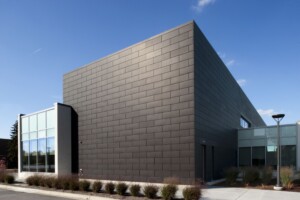Introduction:
Dubai’s skyline is an impressive display of modern architecture, featuring some of the world’s most innovative and iconic buildings. Cladding, a technique used to cover the exterior of buildings, plays a pivotal role in shaping these contemporary masterpieces. Cladding in Dubai has evolved beyond its functional purpose to become an art form that combines aesthetics, sustainability, and functionality. In this blog, we will explore the inspiring designs of cladding Dubai, with a particular focus on the unique butt joint Dubai style.


The Significance of Cladding in Dubai:
Cladding is an essential element in contemporary building design, as it not only enhances the building’s visual appeal but also provides protection against weather elements and improves energy efficiency. Dubai’s extreme weather conditions, including scorching heat and sandstorms, make cladding an indispensable aspect of construction.
Innovative Designs in Cladding Dubai:
Dubai’s architecture is renowned for pushing boundaries and introducing groundbreaking designs. Cladding plays a significant role in achieving these feats. From gleaming glass facades that reflect the city’s grandeur to sustainable cladding solutions that embrace green building practices, Dubai’s cladding designs set global benchmarks.
Butt Joint Cladding in Dubai:
One of the most sought-after cladding techniques in Dubai is the butt joint style. Butt joint cladding features panels that are placed together with minimal visible seams, creating a seamless and sleek appearance. This style not only gives buildings a contemporary and refined look but also ensures efficient weatherproofing.
Advantages of Butt Joint Cladding:
The butt joint technique offers numerous advantages, making it a popular choice for architects and builders in Dubai. It eliminates the need for visible framing elements, providing a clean and uninterrupted façade. Additionally, the lack of overlapping edges minimizes water penetration and reduces the risk of water-related damage.
Sustainable Cladding Solutions:
Dubai’s commitment to sustainable development extends to its architecture. Cladding solutions that incorporate eco-friendly materials and energy-efficient designs are gaining popularity. Green cladding technologies, such as living walls and solar panels integrated into the cladding, contribute to the city’s efforts to create more sustainable buildings.
Blending Tradition with Innovation:
Dubai’s architectural landscape skillfully blends traditional design elements with modern innovations in cladding. Many buildings feature contemporary interpretations of local architectural motifs, seamlessly integrating heritage with the cutting-edge.
Iconic Cladding Examples:
Dubai’s skyline boasts several iconic buildings with unique cladding designs. The twisting Cayan Tower showcases a distinctive silver façade that seemingly spirals into the sky, while the Burj Khalifa’s shimmering glass exterior has become a symbol of modern luxury.
Future Trends in Cladding Dubai:
As Dubai continues to embrace advancements in architecture and construction, the future of cladding in the city promises to be even more awe-inspiring. Innovations such as dynamic cladding that adjusts to environmental conditions and smart cladding that harnesses renewable energy are expected to shape the city’s future skyline.
Conclusion:
Cladding in Dubai goes beyond its practical purpose to redefine the city’s architectural landscape. From innovative butt joint designs that provide seamless elegance to sustainable cladding solutions that emphasize environmental responsibility, Dubai’s buildings embody a perfect fusion of art, functionality, and sustainability. As the city continues to embrace cutting-edge design principles, cladding will remain a fundamental aspect of Dubai’s quest for groundbreaking and iconic architecture.

